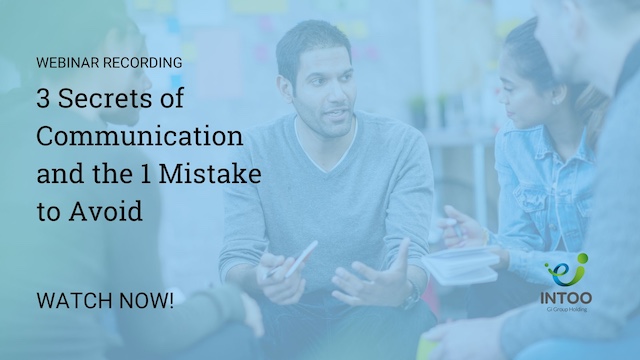If you are in a career transition—or if you are an HR professional exploring outplacement or career transition services for employees at your company who may be affected by a layoff or termination—you may be curious about what a career transition coach can do for a coachee, or how the coaching process works in general. Here are answers to ten common questions about career transition coaching to help you decide if you want to invest in the service.
What Is Career Transition?
Career transition refers to navigating from one job to the next, such as when an individual loses their position due to downsizing or restructuring. The process can involve researching companies and roles, learning new skills, revising or creating a new resume, interviewing, and more. Beyond just looking for a new position, a career transition involves processing the emotions and stress that come with sudden unemployment.
What Is Career Transition Coaching?
Career transition coaching provides vital support for laid-off employees, guiding them through what can be an extremely challenging life change. When companies must cut staff, effective transition coaching serves as a critical resource for those impacted, empowering individuals with self-knowledge, clarity, and motivation during turbulent times.
Skilled career coaches help these employees rediscover their strengths and interests and then align those fully to optimal career paths forward. Coaches also provide networking guidance, resume development, interview preparation, and negotiation support. With an encouraging partner invested in their success, job seekers gain focus, confidence, and energy to propel them into meaningful and fulfilling work, even during tough transitions.
In brief, career transition coaching consists of advice, help, and support from a professional coach for making the best next step in a career. Career transition coaches offer both practical tools and suggestions, as well as personal support to motivate an individual and keep them on track. For example, a coach might help a job seeker find local networking groups in their industry, then provide accountability for them to attend a networking event by following up the next week to see how things went.
For those at the beginning of their careers, or considering changing careers, a coach can also help individualsfigure out aptitudes, skills, and interests, then give them concrete steps to take to explore their options.
What Are the Benefits of Career Transition Coaching?
A career transition coach can take a holistic view of a coachee’s professional aspirations and direct them to the best and fastest path for getting there, according to INTOO career coach Holly. “I think career coaches have that big-picture understanding of the process to guide candidates toward their goals more quickly.” With a view of the overall goal, career coaches can offer specific tools and advice to move people forward, whether through focusing on career-specific job boards or employing networking techniques.
In addition, a career transition coach offers much-needed professional objectivity. “We might look at our résumé and believe it’s great, or we might think we’re doing a good job interviewing, but we’re often not aware of the blind spots that we have or the areas where we can improve,” says Holly. “Not only can career coaches give you unbiased feedback, but they can also help you to see new opportunities for improvement.”
And last but not least, coaches offer emotional support—not only to manage the stress of the job search itself, but also to push job seekers out of their comfort zones to go after what they really want.
5 Ways Employees Can Benefit From Career Transition Coaching
1. Navigating emotional turmoil
Job loss can trigger a wave of shock, grief, and anxiety. Career transition coaches act as empathetic guides, helping individuals navigate these emotions through healthy coping mechanisms and stress management techniques. This emotional support paves the way for a smoother, less overwhelming transition into their next career chapter.
2. Discovering hidden potential
Traditional resumes often fall short of capturing the full spectrum of someone’s skillset and achievements. Career transition coaches use assessments and in-depth conversations to uncover hidden talents, dormant passions, and untapped potential. This self-discovery process ignites a path toward fulfilling new career possibilities that align with individual values and aspirations.
3. Sharpening job search tools
Resumes gather dust if they’re poorly-tailored or uninspired. Coaches help individuals craft dynamic resumes and cover letters that resonate with target employers, highlighting relevant skills and achievements in a compelling narrative. Beyond resumes, coaches help job seekers sharpen interview skills through mock sessions, boosting confidence to secure that dream job.
4. Expanding networking circles
The hidden gem job often lies within a trusted network. Career coaches equip individuals with effective networking strategies that go beyond LinkedIn, teaching them how to build genuine connections with industry professionals and leverage those connections to uncover hidden opportunities. This expanded network becomes a powerful resource for landing fulfilling roles beyond the standard job boards.
5. Minimizing financial stresses
Layoffs often coincide with financial uncertainty. Career transition coaches help individuals navigate severance packages, maximize unemployment benefits, and set up realistic financial plans for the future. This personalized support empowers individuals to make informed decisions, alleviating financial anxieties and allowing them to focus on their career search with confidence.
Career Transition Coaching FAQS
Do I have to meet career transition coaching face to face?
Although some career coaches rely exclusively on in-office consultations, many allow video, phone, or text-based meetings. INTOO’s outplacement solution, for example, offers on-demand, one-on-one coaching to people in the program, allowing them to just go online at their convenience and immediately talk to a career coach by video, audio, or text chat, seven days a week.
If convenience is a factor to you, choose a career transition coaching program that allows you to meet with your coach online at a time that works for you.
What can people expect during a first meeting with a career transition coach?
An experienced career transition coach will likely begin by asking questions to find out more about who you are, your work experience, and your goals. As the coach gets to know you, you can expect attention and advice that’s personalized to you. “Every candidate is different—they have unique needs and varying degrees of readiness for action steps in the employment transition process,” says INTOO career coach Natalie. “We meet them where they are and tailor the coaching approach to their industry, experience level, communication and work style, and career targets.”
Are there common misconceptions about career transition coaching?
Often, people don’t think they need coaching because they have found jobs and made progress in their careers without help in the past. Case in point: Shana Lebowitz, who wrote about her experience working with a coach for Business Insider, said before receiving coaching, she didn’t think she needed the support. But she soon found she did: “Working with [my coach] made me realize that for years, I’d been leaving my career development to chance.”
Some people mistakenly think that career transition coaching is a one-time event. They might expect the coach simply to review their resumes, or give them all the direction they need in a single meeting. While there are individuals who only need a key question answered or a resume edited, most people benefit from multiple coaching sessions to assess goals and needs, create a plan of action, and stay on track throughout the job search process.
Other people may believe that career transition coaches will get them a job on their behalf. This is also a misconception. While a coach can help you get a job, their role is to coach the job seeker, not become the job seeker.
How much career transition coaching do I need?
The amount of coaching needed depends on the person, but often, people meet with their career transition coach regularly until they find a job. This is especially true for senior and executive-level employees who generally take a longer time to find and accept a new position. Meeting on a regular basis helps keep you on track, motivate you, and troubleshoot as necessary.
That said, not everyone can afford longer-term professional career transition coaching services. As you choose a coach for yourself or evaluate the career coaching services offered by different outplacement companies, you’ll want to ensure that the program you select allows you to receive coaching for an adequate length of time. The average person takes ten or more weeks to find a new job; senior and executive-level employees often take five or more months.
A high-quality outplacement program takes these timelines into account. INTOO’s outplacement solution, for example, offers job seekers unlimited one-on-one career coaching for a minimum of six months. This allows people to receive all the personal coaching they need during the entire course of their job search.
Can a career transition coach help me change careers?
Yes. INTOO career coach Ellen says when she works with people who want to change careers, she takes a person-by-person approach. “How I coach also depends on the type and depth of the change a candidate is looking for,” she says. “Sometimes what they want to do is still within their wheelhouse. In that case, it might be a matter of rearranging a few things in the resume. But if what they want to do is the polar opposite of what they’ve done in the past, I like to start with a clean slate and ask, “What are some things that you feel are going to be good for you? What are things that you’ve always wanted to do? Maybe now’s the chance to try them.”
What aspect of the career transition process do people need the most help with today?
According to INTOO career coach Holly, ”LinkedIn is a huge, huge, huge part of the job search process today, but some people aren’t aware of that or don’t know how to use online networking tools.” Especially for people who have not gone through a job search in a long time, career transition coaches can be especially helpful with getting them connected and making them marketable in the digital age.
How long does an average career transition coaching session last?
Some coaches have fairly strict timeframes for meetings, requiring that you work together for 45 to 90 minutes at a time. Virtual career coaching, however, often allows for more flexibility. INTOO’s outplacement solution, for example, lets people contact a coach to ask just one quick question about interviewing, or to converse in depth about an entire career shift.
How much does career transition coaching cost?
The cost for career transition coaching varies widely. Coaches charge anywhere from $50 to $500 per session, which can run from 45 to 90 minutes. Coaches who are just starting out in their careers generally have lower fees, while more experienced and popular coaches charge higher rates.
However, if a company offers outplacement service to employees after a layoff or termination, the outplacement program is complimentary for the affected employees and usually includes career transition coaching. This allows terminated employees to receive career transition coaching at no cost to them.
A professional career transition coach can help answer these questions more quickly and productively. INTOO’s outplacement solution offers unlimited, on-demand, one-on-one career transition coaching seven days a week via video, audio, and text chat, so people can get career advice when and where they need it. Contact us to learn more about how INTOO can help you support your departing employees in their job search.













